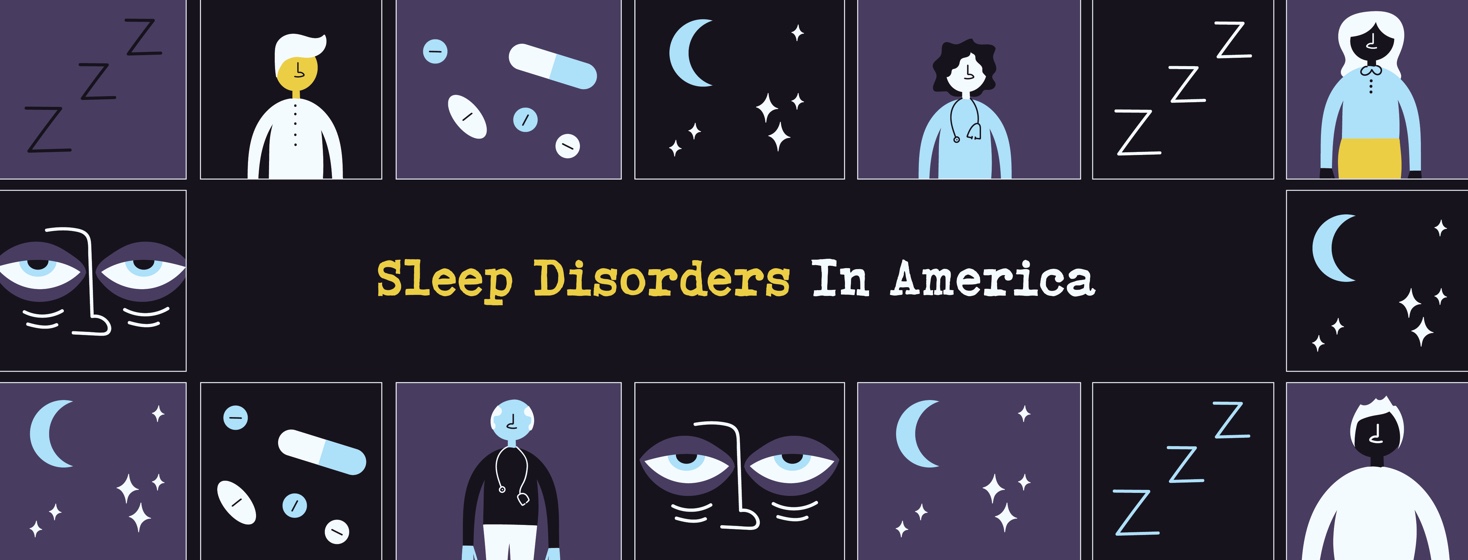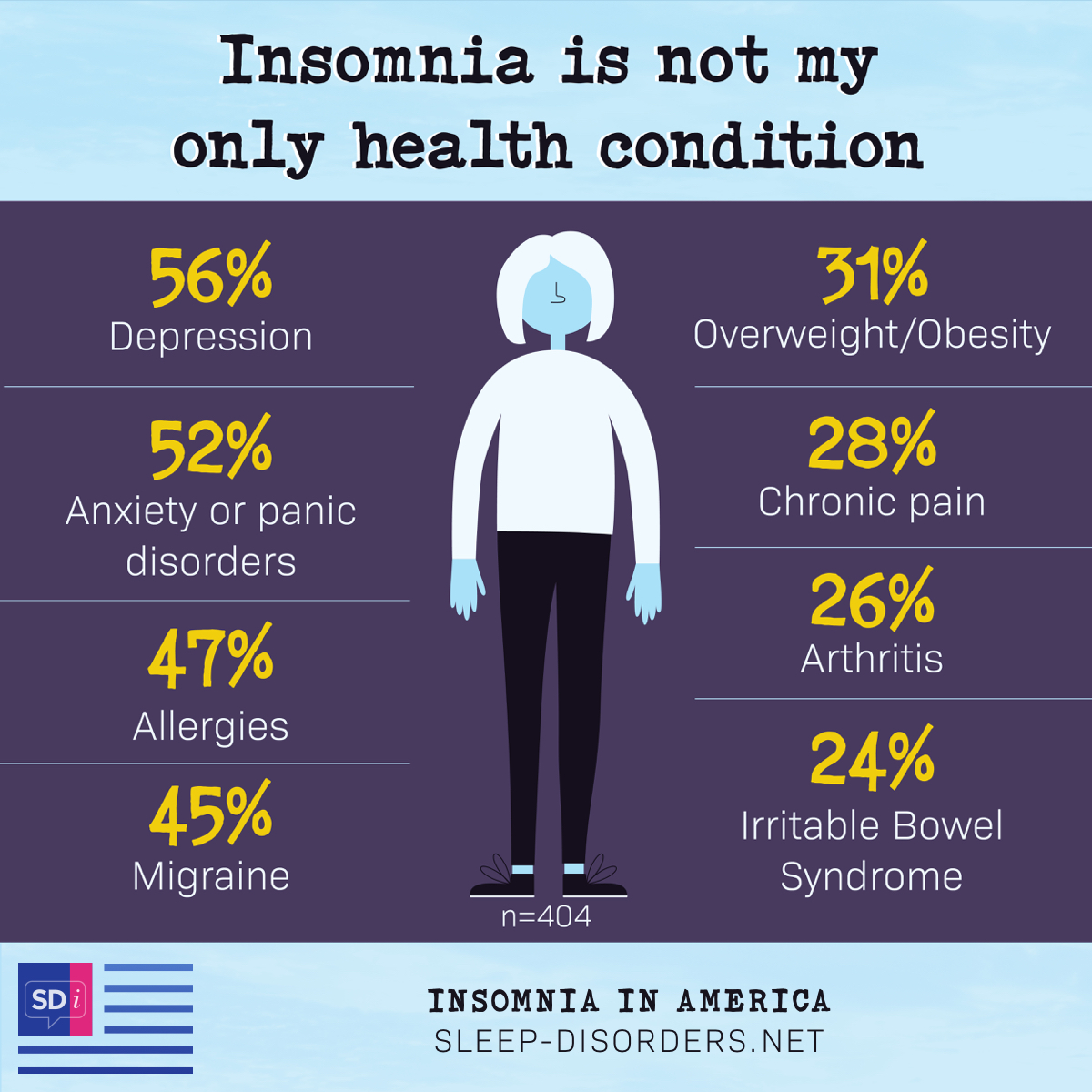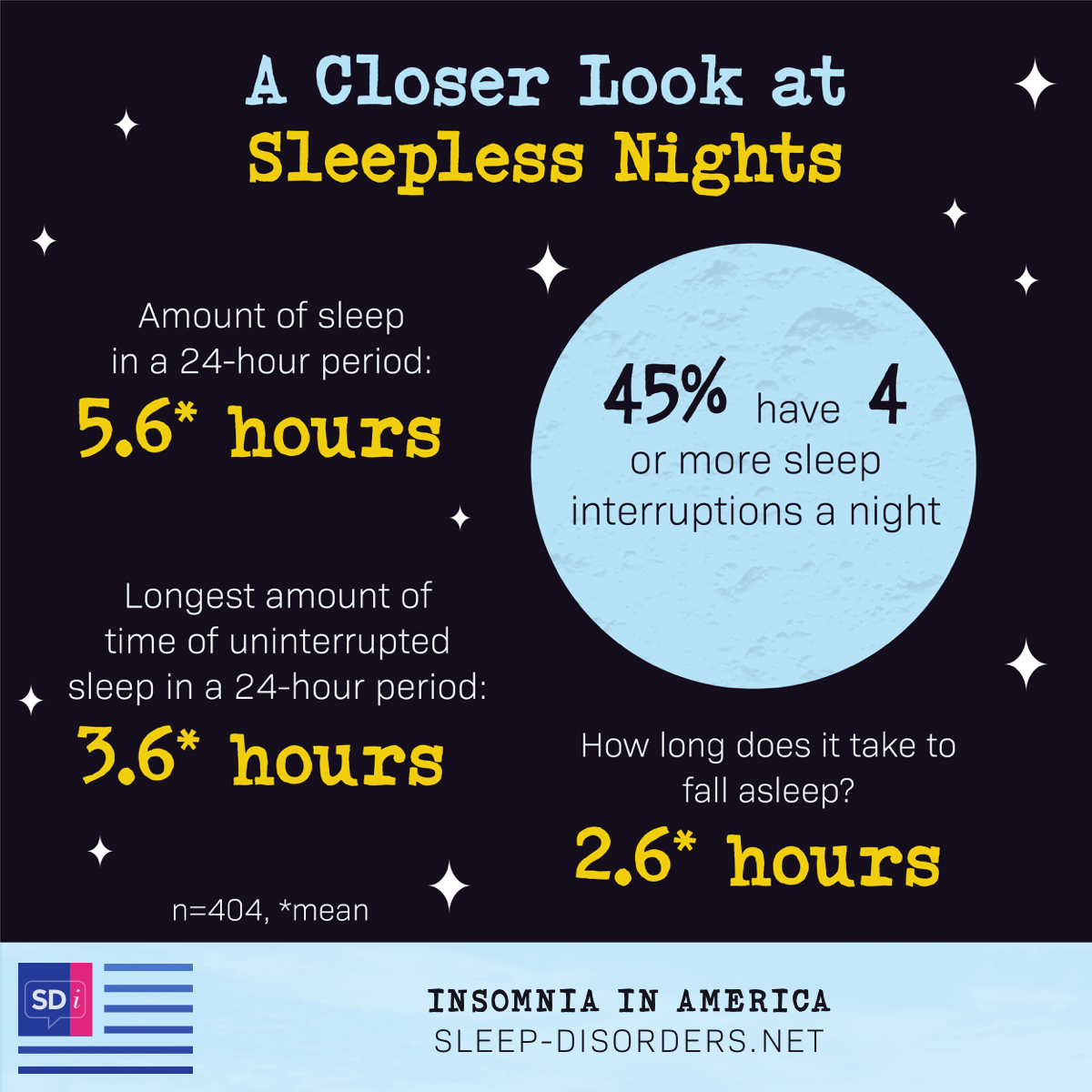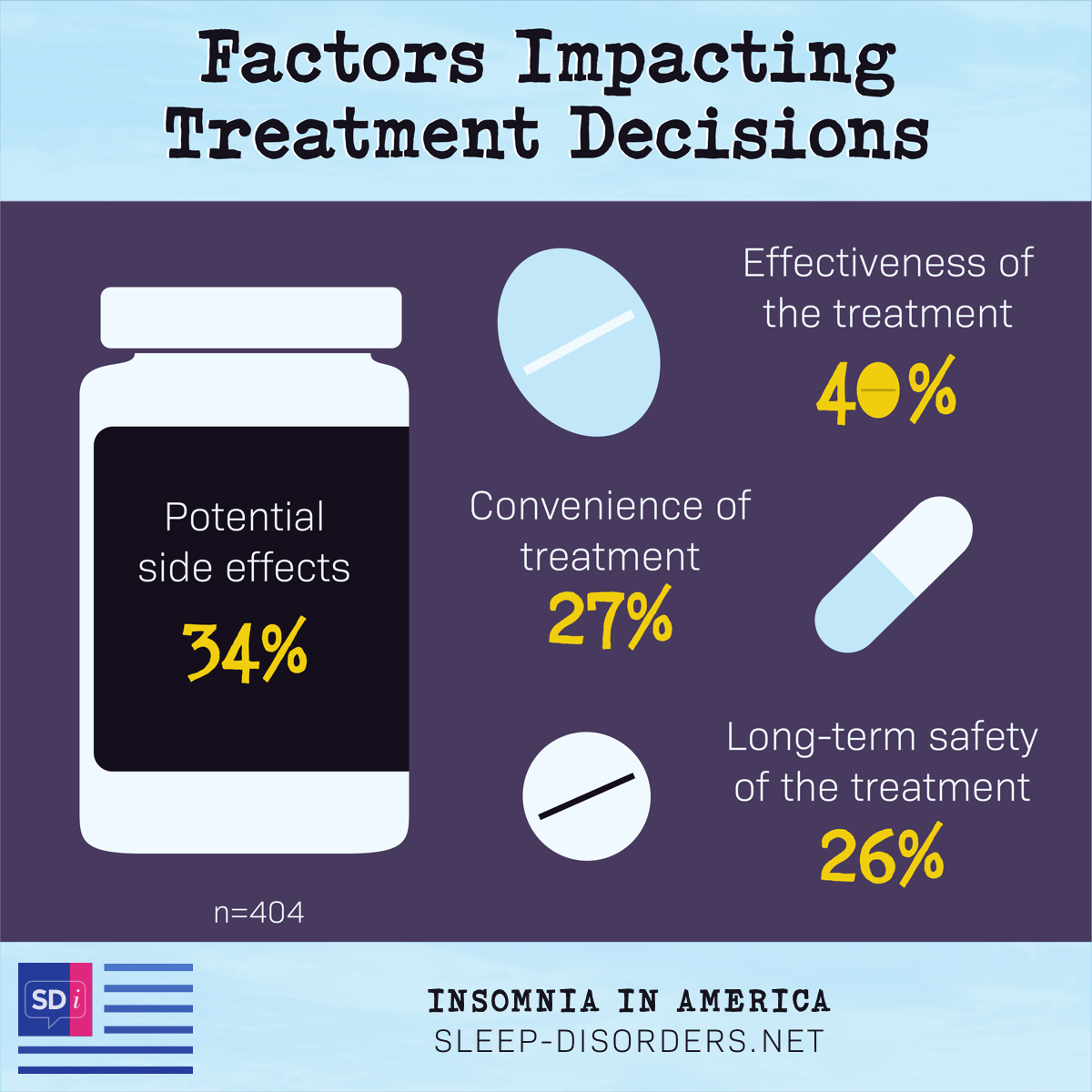The Reality of Insomnia: Results From the Inaugural Sleep Disorders In America Survey
Insomnia is the most common sleep disorder, affecting millions of Americans each year. While many people know what it feels like to have a sleepless night every now and then, few truly understand what it is like to live with chronic insomnia.1,2
The often-unseen struggles with insomnia include physical, emotional, and mental health challenges that affect many aspects of daily life. Despite the variety of ways people treat their insomnia and the numerous coping strategies they turn to, many are still left looking for consistent, good-quality sleep. In our Inaugural Sleep Disorders In America survey, we asked people living with insomnia to share what life is really like.
More than “just” insomnia
For many, life with insomnia also means living with other health conditions. The vast majority – 96 percent – of survey respondents said they have been diagnosed with another health condition besides insomnia. The relationship between insomnia and other conditions can be complicated, especially when it comes to mental health. Those with depression or anxiety may wonder which came first, their mental health issues, or their insomnia?
It is not easy to live with multiple health conditions, and when one of them is insomnia, the physical and mental health effects are hard to overcome. About 61 percent* of people surveyed strongly agree that their insomnia has a negative effect on their mental health.
The struggle to fall asleep and stay asleep
Insomnia is defined by trouble falling asleep or staying asleep, but what exactly does that mean? For some, it means that despite feeling completely exhausted, night after night they are unable to sleep. For others, they may be able to fall asleep easily but their bodies do not stay asleep.
Other health conditions, anxiety, post-traumatic stress disorder, or pregnancy might give some people a clue into what is causing their insomnia. But for others, including 41 percent of survey respondents, they have primary insomnia, meaning it is not caused by anything else.
Still searching for relief
Living with chronic insomnia can feel like a round-the-clock struggle. There may be evening stress over whether or not sleep will come, little or no sleep throughout the night, and daytime fatigue and sleepiness. It can feel relentless. Only 2 percent of people surveyed said they have not experienced insomnia symptoms in the past month.
Despite many treatment options, including cognitive behavior therapy, medicines, and lifestyle or sleep hygiene changes, it is not easy to find relief. Only 8 percent* of survey respondents said they feel their insomnia is controlled under their current treatment plan. For many, the search for effective treatment continues on.
The power of community
Our community is one place you can turn to for support and understanding. Whether you are looking for treatment information or tips to cope with symptoms, sharing your own story and reading others’ helps us feel more connected, more informed, and a little less alone.
The Inaugural Sleep Disorder In America survey was conducted online from March through July 2020. Of the 2,198 people who completed the survey, 404 were insomnia respondents.
*Top 2 responses on 7-point scale




Join the conversation